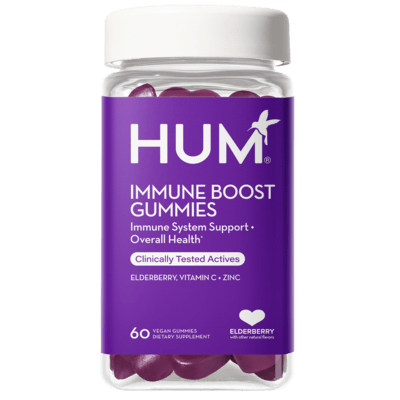Gaby Vaca-Flores, RDN, CLE, answers a common question: How does the immune system work?
You hear about boosting the immune system all the time, but what does that actually mean?
There are many things that influence the immune system’s ability to function properly. So to best answer if you can really boost your immune system, we should first aim to understand exactly how the immune system works and what it is.



What is the immune system?
For many people, the immune system may be an abstract concept. We know it exists, but since it’s not tangible (like a body part such as the heart), it can be difficult to conceptualize how it really works. The US National Library of Medicine defines the immune system as a complex network of cells, tissues, and organs. We see the immune system at work in many areas of the body, including:- skin: acts a physical barrier against germs
- mucus: another physical barrier that creates a moist lining for bodily cavities and organs to trap and fight invading substances
- white blood cells: attack invading substances and ward off ailments
- lymphatic system: home of various organs and tissues that produce, store, and transport white blood cells

How the Immune System Works
The main purpose of the immune system is to protect and fight against threatening organisms, commonly known as antigens. The body tightly regulates the immune system. At the end of the day, its job is to respond to an antigen and then—emphasis on then—create immunity to it. In most cases, it’s good at it too. When the immune system detects an antigen, it initiates a defense response to weaken and destroy the antigen by releasing antibodies. Antibodies are a group of proteins that help eliminate antigens and reduce the chance for future infection. Additionally, the immune system doesn’t approach all threats equally. In fact, there are two types of immunity—innate and adaptive—that react to antigens differently.1. Innate immunity
Innate immunity consists of anatomical barriers like our skin and mucus to ward off unwanted invaders. As our first line of defense, the innate immune system usually responds to antigen exposure within minutes to ward off foreign threats. Essentially, innate immunity is non-specific, meaning that it’ll respond with the same network of generic cells.2. Adaptive immunity
While innate immunity helps avoid the likelihood of invaders from entering the body, adaptive immunity fights antigens that have already made their way in. In fact, it creates a specialized response to attack, weaken, and destroy antigens. Because its response is highly specific, the adaptive immune system can take hours and even days to respond. On the plus side, its protective mechanisms are long-lasting. For example, you’re unlikely to get the chickenpox twice in a lifetime. After recovering from the first occurrence, your body will remember the specific ailment and build immunity to it.
Can you boost your immune system?
While it’s impossible to guarantee perfect immunity all the time, you can make lifestyle and dietary choices to generally support your immune system. After all, many factors influence how effectively the immune system works. Understanding what can take a toll on the immune system and how to support its different functions is a great place to start. That said, a better question may be: How do you build up your immune system?How to Support Your Immune System
Certain agitating factors can weaken the immune system response. These include:- air pollution
- stress
- poor nutrition
- not getting enough sleep
- smoking
- drinking alcohol
Eat Nutrient-Rich Foods
Of these factors, improving our nutritional status may be one of the simplest ways to build up immune system function. Again, a poor diet can have inflammatory effects and add oxidative stress to our immune system. Plus, eating poorly can make it difficult to get enough nutrients into your diet. In fact, the lymphocyte cells that drive our defense efforts heavily rely on certain nutrients for optimal function. Vitamin C and zinc are among the most important and most researched nutrients for supporting the proper function of our defense cells.
Maintain a Healthy Lifestyle
In addition to consuming adequate amounts of vitamin C and zinc, there are a number of things you can do to give your immune system a helping hand. To build up your immune system and encourage resilience, be sure to:- stay physically active
- get the recommended 7.5 hours of sleep per night
- support your gut health
- maintain good hygienic practices
Final thoughts
The immune system is complex. Collectively, the innate and adaptive immune systems work to protect and eliminate outside invaders. They also help build immunity to provide long-lasting protection. Fortunately, with dietary and lifestyle modifications, we can indirectly support the immune system to support optimal function. Lastly, our Boost Sweet Boost gummies deliver high potency vitamin C, zinc, and elderberry—all of which can support your immune system.More like this









